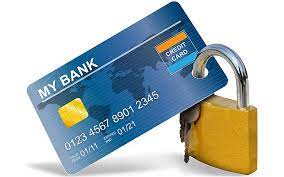Everything from mobile accessories to groceries is a few clicks away, thanks to eCommerce stores and online business. It sounds pretty convenient and it is. Buying stuff online with credit cards is pretty safe but we cannot say that there are no risks involved. Modern consumers don’t have control over things like ID theft and data breach. But they can shop smart and take basic online security measures to make it hard for modern thieves (cybercriminals) to access confidential information and commit credit card frauds.
Hackers and cyber criminals are always seeking to access the personal information and data of online users. However, there are simple steps that online shoppers can take on to keep their credit cards safe when shopping online.
Use a private device and a secure connection
With a shared computer just like in an internet café or library, websites can save your account login details and leave your logins vulnerable to any next anonymous user. Even if you log out of your account from a public computer or device, there might be some spyware to have access to your personal information like user names, passwords, credit card numbers, and PINs, etc. That is the reason, you should always use a private device and a secure internet connection when making payments for online purchases via credit card. Always try to use your personal computer or smartphone to make an online purchase and ensure the device is connected to a secured internet connection. If the use of a public internet connection is the only option, you should be using a VPN to make the connection private and secure to make sure all your personal details and credit card information are protected from curious eyes and spyware.
“S Is for Secure” So, Make Sure to Check HTTPS in the URL
Whenever it comes to make an online payment via credit card, make sure your connection to an online store or website is secure. Availability of the lock symbol and HTTPS instead of HTTP in the URL bar makes sure all the information submitted would be encrypted. Information submitted to a webpage starting with HTTPS encrypt all the details and makes them protected from third parties.
Use Known, Trusted Stores and Sites
Always choose online stores and retailers that you know and trust. If you are not familiar with a store or online website, don’t enter your credit card details or other personal information until you find some trust signals. If a site is designed with a poor design and lack a professional appearance, you should look for a desired product or service elsewhere. Checking for online reviews and recommendation is also a great way to make purchases from known and trusted sites.
Add an Extra Layer of Security
Digital wallets like Google Pay, and Apple Pay offer added layers of security as they don’t share credit card details and information to the site or vendor you are about to pay via your credit card. They create one time virtual account number for each payment. According to Apple, they even not store or save your personal details on devices or servers. Hence, some online stores and websites don’t accept payments via digital wallets, but you can ask the card provider for a virtual account number to stay safe and secure.
Keep your Credit Card PIN Safe
The PIN (personal identification number) is a number that you should keep secret. Choose a random PIN for your credit card and remember it even without writing it down somewhere. Never share it with anyone else and change it frequently especially if any suspicious activity is detected. You can also set up additional security features like two-factor authentication to keep your credit card protected from any third party even if your credit card details are compromised.
How to Keep Your Credit Card Safe When Shopping Online?
(Visited 86 times, 1 visits today)
Last modified: June 15, 2021













